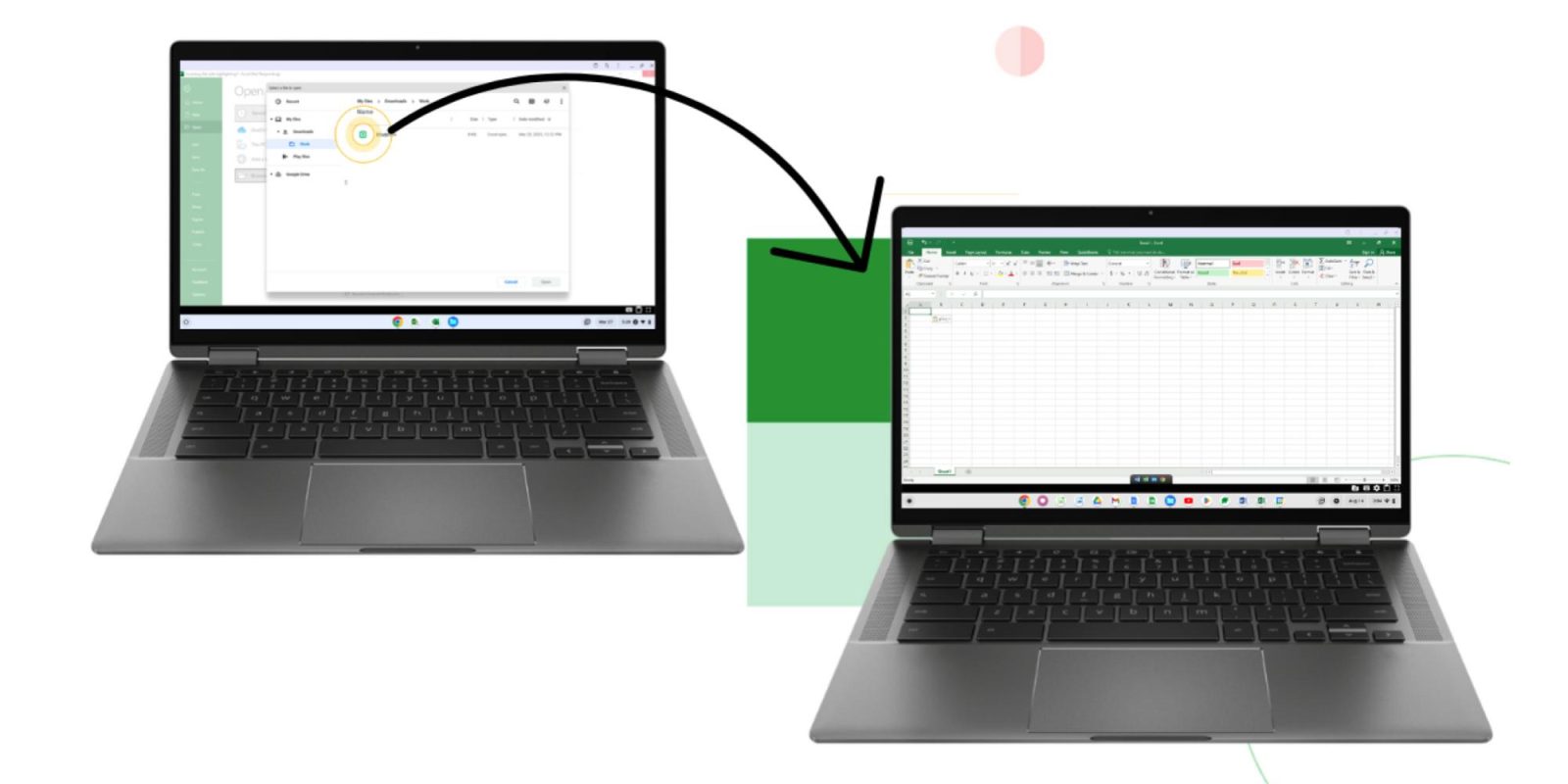
Google has worked with Cameyo to give enterprise Chromebooks another way to run Windows applications using ChromeOS Virtual App Delivery.
Cameyo is an enterprise company that offers a “Virtual App Delivery” (VAD) platform that can stream Windows, Linux, internal web, and SaaS applications to other devices. This offering is now getting tight integration with ChromeOS.
These Windows apps appear like other icons in a Chromebook’s launcher and taskbar. Behind the scenes, they are PWAs (Progressive Web Apps) that aim to blur their streamed nature with native file system integration. This includes letting users access local files and folders from within the virtual instances. Similarly, integration with the ChromeOS Clipboard Connector allows for local copy and paste.
When a user opens a specific file type, Cameyo makes it so that the appropriate virtual app launches.
These virtual apps can be streamed from the cloud or on-premises data centers. Compared to full virtual desktop apps, this approach is said to “eliminate the infrastructure and licensing complexity.”
On the security front: “apps and devices are isolated from network resources and segmented by default so that users only access the apps and data they need to get their jobs done, all while eliminating the need to expose firewall and server ports to the open internet.”
ChromeOS Virtual App Delivery with Cameyo is available today as an enterprise offering. There is no consumer equivalent.
More on Chromebooks:
- ChromeOS preparing major Settings redesign, Google Tasks integration [Gallery]
- Google appears to be readying an AI writing tool for ChromeOS
- ChromeOS 115 rolling out: Android App Streaming, PDF signatures
- This is ‘Chromebook X’: Google’s new standard for ChromeOS
FTC: We use income earning auto affiliate links. More.






Comments